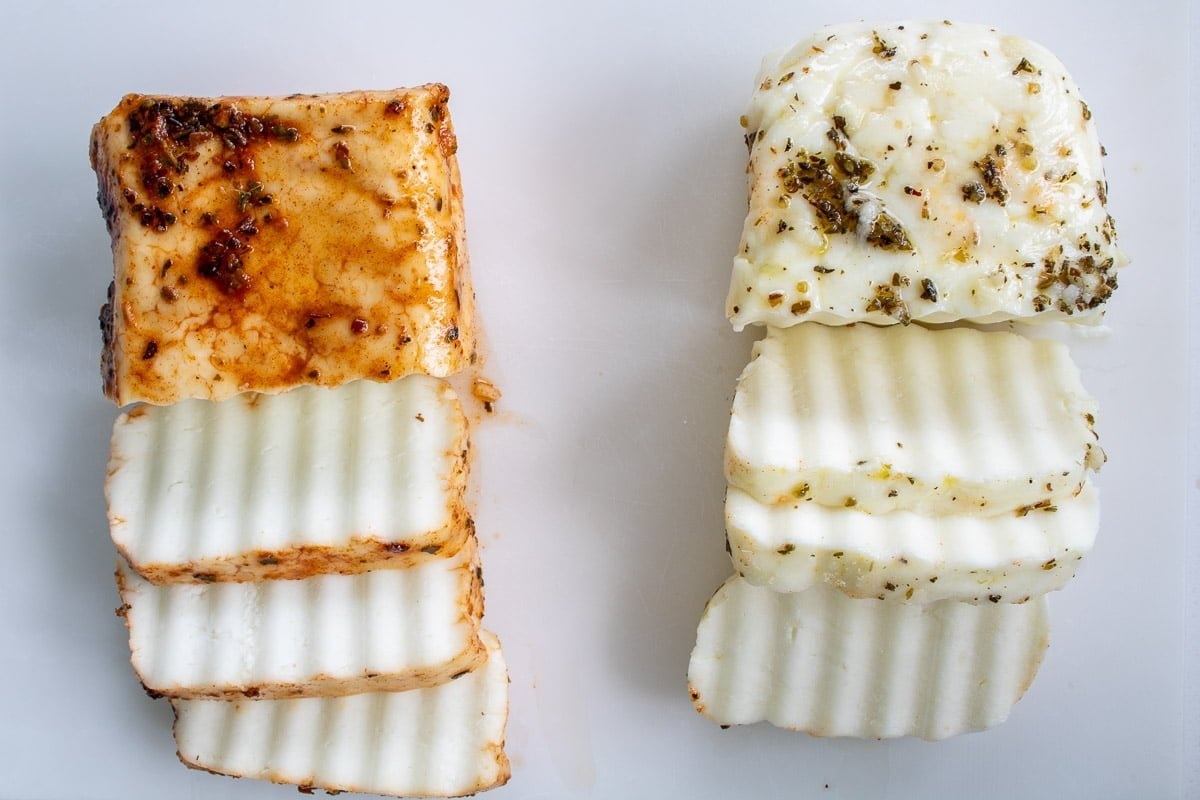
Halloumi is a cheese that stands out not just for its unique taste but also for its nutritional profile. Originating from Cyprus, this semi-hard, unripened cheese made from a mixture of goat's and sheep's milk (and sometimes cow's milk) has become a favorite in many kitchens worldwide. But what makes it so special? Halloumi nutrition facts reveal a lot about why this cheese is gaining popularity. From its high protein content to its rich calcium levels, halloumi offers several health benefits. Whether you're grilling it for a salad or frying it for a snack, knowing these facts can help you make informed dietary choices. Let's dive into the world of halloumi and uncover what makes it a nutritional powerhouse.
What is Halloumi?
Halloumi is a semi-hard, unripened cheese made from a mixture of goat's and sheep's milk, and sometimes cow's milk. Originating from Cyprus, this cheese is known for its high melting point, making it perfect for grilling or frying. Let's dive into some fascinating nutrition facts about halloumi.
Nutritional Profile of Halloumi
Understanding the nutritional profile of halloumi can help you make informed dietary choices. Here are some key facts about its nutritional content:
- High in Protein: Halloumi contains about 7 grams of protein per ounce, making it a great source for muscle repair and growth.
- Rich in Calcium: One ounce of halloumi provides around 20% of the daily recommended intake of calcium, essential for strong bones and teeth.
- Contains Healthy Fats: Halloumi has a balanced mix of saturated and unsaturated fats, contributing to overall heart health.
- Low in Carbohydrates: With less than 1 gram of carbs per ounce, halloumi is suitable for low-carb diets like keto.
- High in Sodium: One serving can contain up to 350 mg of sodium, so it's best consumed in moderation to maintain healthy blood pressure levels.
Health Benefits of Halloumi
Halloumi isn't just delicious; it also offers several health benefits. Here are some reasons to include it in your diet:
- Supports Bone Health: The high calcium content helps in maintaining bone density and preventing osteoporosis.
- Aids Muscle Function: The protein in halloumi supports muscle repair and growth, making it ideal for athletes.
- Boosts Immune System: Contains zinc, which plays a crucial role in immune function and wound healing.
- Promotes Heart Health: The presence of unsaturated fats can help reduce bad cholesterol levels, promoting cardiovascular health.
Cooking with Halloumi
Halloumi's unique texture and flavor make it versatile in the kitchen. Here are some interesting facts about cooking with halloumi:
- Grill-Friendly: Halloumi's high melting point allows it to be grilled or fried without losing its shape, making it perfect for barbecues.
- Versatile Ingredient: Can be used in salads, sandwiches, or even as a meat substitute in vegetarian dishes.
- Flavor Absorption: Halloumi absorbs flavors well, making it ideal for marinating with herbs and spices.
Halloumi in Different Cuisines
Halloumi has found its way into various cuisines around the world. Here are some ways it's enjoyed globally:
- Mediterranean Delight: Often served with watermelon in Cyprus, creating a sweet and salty combination that's refreshing and delicious.
Halloumi's Nutritional Goldmine
Halloumi isn't just delicious; it's packed with nutrients. This cheese is a fantastic source of protein, making it great for muscle repair and growth. It's also rich in calcium, which is essential for strong bones and teeth. Plus, halloumi contains vitamin B12, crucial for nerve function and red blood cell production.
While it's high in sodium, which means you should enjoy it in moderation, the benefits far outweigh the drawbacks. The healthy fats in halloumi can help keep you full longer, aiding in weight management.
Incorporating halloumi into your diet can add variety and nutrition. Whether grilled, fried, or added to salads, this cheese offers a tasty way to boost your nutrient intake. So next time you're planning a meal, consider adding halloumi for a delicious and nutritious twist.
Was this page helpful?
Our commitment to delivering trustworthy and engaging content is at the heart of what we do. Each fact on our site is contributed by real users like you, bringing a wealth of diverse insights and information. To ensure the highest standards of accuracy and reliability, our dedicated editors meticulously review each submission. This process guarantees that the facts we share are not only fascinating but also credible. Trust in our commitment to quality and authenticity as you explore and learn with us.


